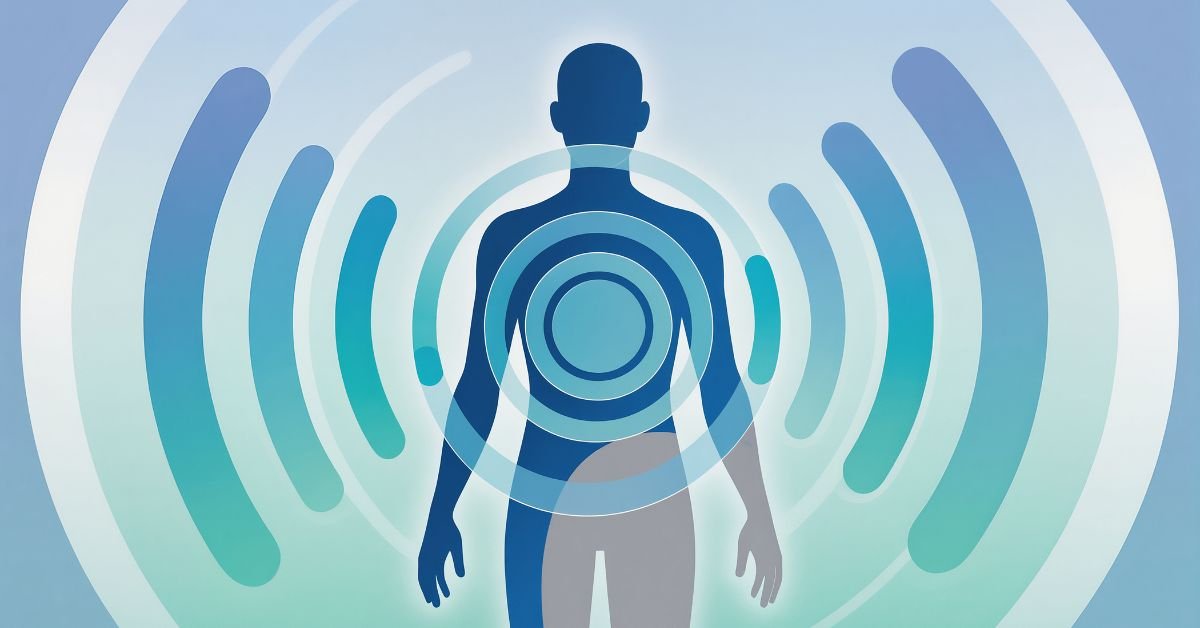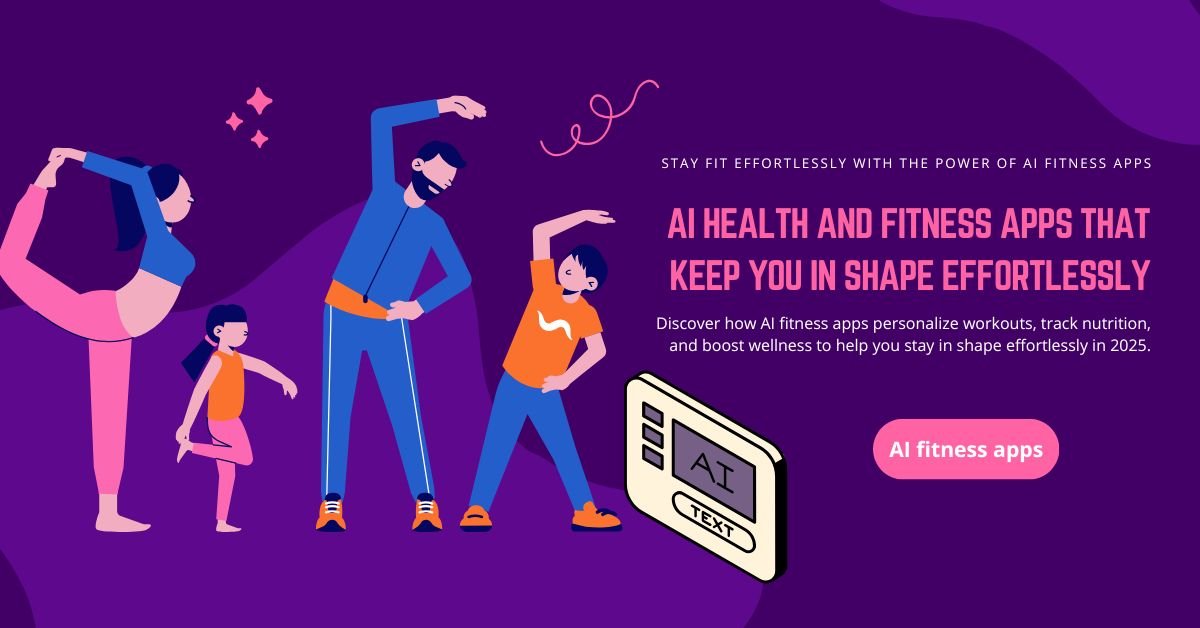Staying fit sounds simple, but for most of us, it’s a constant struggle. Between long workdays, endless commitments, and the lure of comfort food, exercise and healthy routines often take a backseat. Traditional fitness apps promise solutions but still rely heavily on motivation and manual tracking. Many people download them, use them for a week, and then quit. The problem? They lack personalization, adaptability, and consistent engagement.
That’s where AI fitness apps step in. They go beyond calorie calculators and step counters by learning from your behavior, adapting to your needs, and nudging you toward better choices without overwhelming you.
Why does solving this problem matter? Because good health drives productivity, happiness, and long-term success. If the tools we use can reduce friction and make fitness feel effortless, we’re far more likely to stick with it.
The Core Problem with Traditional Fitness Apps
Most fitness apps ask too much of the user:
Log every meal manually.
Track workouts step by step.
Follow rigid exercise plans designed for “one-size-fits-all.”
This model fails because it creates more work, not less. And when motivation dips, users stop engaging.
Here’s the reality: health and fitness tools should remove barriers, not add them. People need guidance that feels natural, tailored, and effortless. That’s exactly where AI fitness apps shine.
Solution: How AI Fitness Apps Transform the Experience

1. Personalized Health Insights
Instead of generic advice, AI analyzes your data—steps, sleep, heart rate, diet—and builds a unique plan. For example:
If your smartwatch shows poor sleep, the app adjusts workout intensity.
If you walk more on weekends, it shifts cardio sessions accordingly.
Case study: WHOOP, an AI-driven wearable, uses recovery scores to tell athletes when to push harder or rest. This personalization keeps engagement high.
2. Real-Time Feedback That Motivates
AI fitness apps don’t wait until the end of the week to show results. They provide instant feedback.
Missed your water intake goal? You’ll get a friendly reminder.
Completed your workout streak? You’ll see a motivational badge.
This instant loop keeps people accountable without making them feel guilty.
3. Adaptive Workouts
Rigid plans often discourage beginners or people with irregular schedules. AI solves this by adapting workouts in real time.
Busy day at work? The app suggests a 10-minute high-intensity routine.
Feeling tired? It offers yoga or stretching instead of cardio.
Apps like Freeletics already use AI to design routines that adjust to performance and availability. This flexibility makes exercise fit into life, not the other way around.
4. Nutrition Guidance Made Simple
Manually logging every bite is tedious. AI changes that with:
Photo recognition to log meals instantly.
Smart suggestions for healthier swaps.
Daily insights based on eating habits.
Imagine snapping a picture of your lunch and instantly getting calorie estimates and suggestions for balance. That’s the ease AI fitness apps bring.
5. Predictive Wellness Support

Prevention matters as much as performance. AI can predict potential issues by spotting trends in your health data.
Noticing increased resting heart rate? It may suggest stress-reducing activities.
Spotting inconsistent sleep? It recommends wind-down routines.
This predictive power isn’t just theoretical—recent findings by Harvard Health – AI in fitness, show how machine learning helps detect early signs of health issues.
Top 5 AI Fitness Apps in 2025
Here are the standout AI fitness apps leading the way this year:
Fitbod – Uses AI to create strength-training plans that adapt after every workout.
Freeletics – Offers personalized AI coaching with flexible routines for busy schedules.
WHOOP – Tracks recovery, sleep, and strain with AI-driven performance insights.
Lumen – A handheld device with an AI app that measures metabolism through breath analysis.
Cure.fit (Cult Fit) – Popular in India, combining AI-based workout suggestions, nutrition plans, and mindfulness coaching.
These apps prove that AI is no longer just an add-on; it’s the core driver of personalization and long-term consistency.
Overcoming Challenges with AI Fitness Apps
While the benefits are clear, a few challenges exist.
Data Privacy Concerns – Sharing health data raises security questions. Always choose apps with transparent policies and secure encryption.
Overdependence – Relying too much on AI may make people ignore their body’s signals. Balance is key: treat AI as a coach, not a dictator.
Accessibility – Some advanced apps can be expensive. Look for free or affordable alternatives that still offer personalization.
By being mindful of these challenges, users can maximize benefits while avoiding pitfalls.
Best Practices for Success
If you want to make the most of AI fitness apps, here are a few tips:
Start small: Use one or two features instead of everything at once.
Stay consistent: Even five minutes daily can build momentum.
Review data weekly: Check your progress and let AI adjust goals.
Sync devices: Connect wearables for the most accurate insights.
These practices ensure the app becomes a helpful companion, not just another unused download.
Conclusion: Why This Works
The real problem with fitness isn’t a lack of tools—it’s a lack of support that feels effortless. AI fitness apps solve this by removing friction, adapting to your lifestyle, and nudging you toward healthier choices without overwhelming you.
I’ve seen how small AI-driven nudges—like a hydration reminder or a tailored 10-minute workout—can completely change consistency. That’s the power of these tools: they make fitness feel achievable, even on tough days.
That’s the power of these tools: they make fitness feel achievable, even on tough days. If you’re curious about other ways AI boosts productivity and health, explore this guide on the best AI tools 2025
If you’ve struggled with fitness apps before, try one of these AI-powered options. You may be surprised at how natural staying in shape can feel.

Hi, I’m Amarender Akupathni — founder of Amrtech Insights and a tech enthusiast passionate about AI and innovation. With 10+ years in science and R&D, I simplify complex technologies to help others stay ahead in the digital era.



